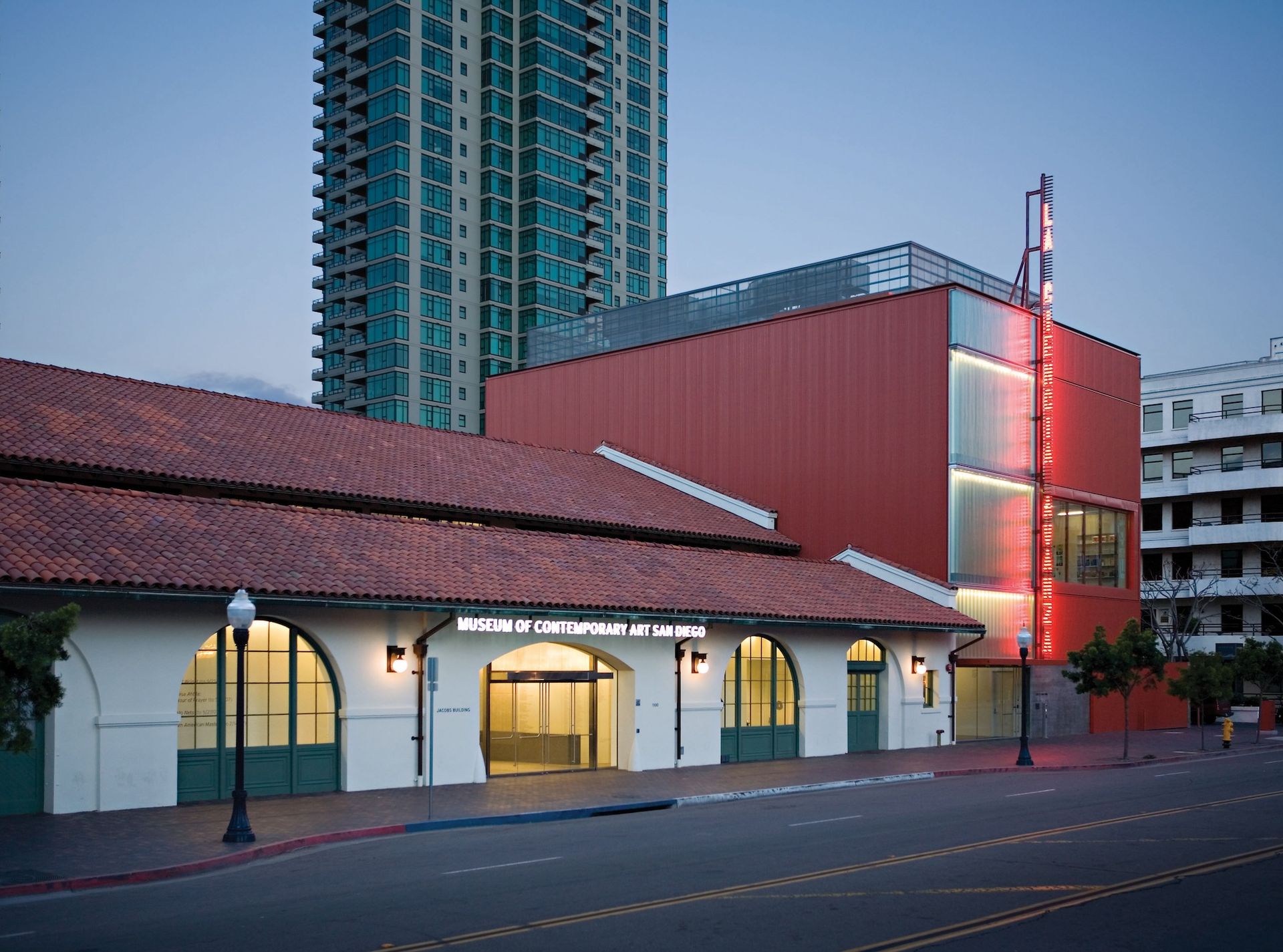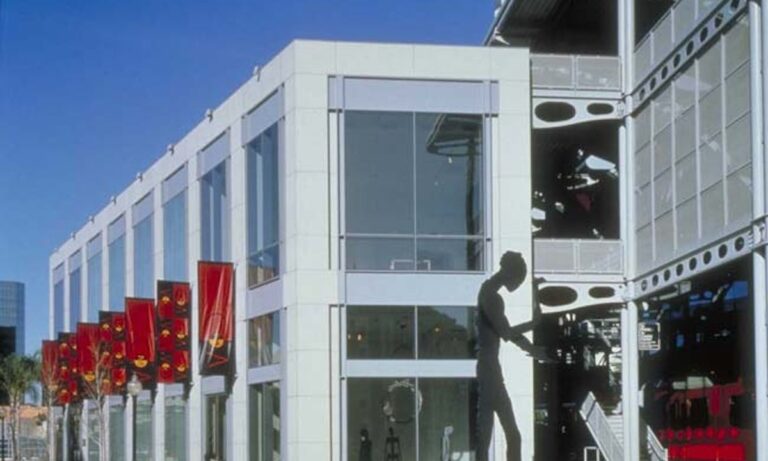After more than three decades in downtown San Diego, the Museum of Contemporary Art San Diego (MCASD) at 1001 Kettner Boulevard has turned over its lease to the new Navy Seal Museum.. The smaller of MCASD’s two downtown buildings will serve as the future site for the military museum, while plans for the larger space — the former baggage processing facility for the Santa Fe depot at 1100 Kettner Boulevard, which is owned by MCASD. unknown MCASD’s main building in La Jolla, about 8 miles north of downtown, is now the museum’s only location.
“The design is complete,” says Todd Perry, director of the Navy Seal Museum The Journal of Art. “Now we can start, as they say, to get in there and start swinging hammers.”
The Navy Seal Museum will use the space as both a historical research of the military branch and for recruiting, as the building is near Naval Base Coronado, a training facility in a region that is home to more than 600,000 active duty and retired personnel. “The art of serving and the inspiration to serve is something we are very proud of,” says Perry. “This is not a museum of war, it is a museum of enormous sacrifice and service.” The Navy Seal Museum is scheduled to open in late December.
After several years of hosting small gallery spaces downtown, MCASD Downtown officially opened in 1993 in the One America Plaza building (1001 Kettner Boulevard), designed by architect Helmut Jahn with interiors designed by artists Robert Irwin and Richard Fleischner and by architect david Rafael Cantor. MCASD Downtown’s largest building at 1100 Kettner Boulevard opened in 2007.
The completion of an interior renovation of MCASD’s La Jolla location, combined with the onset of the Covid-19 pandemic in early 2020, declining attendance and a general change of scenery in the downtown San Diego Seaport area, led to the MCASD’s decision to transfer its lease at 1001 Kettner Boulevard to the Navy Seal Museum. (The building is owned by the Irvine Company, a real estate giant that owns many notable properties around the country, including the MetLife Building in New York.)

Meanwhile, the fate of MCASD Downtown’s Jacobs Building and Copley Building at 1100 Kettner Boulevard (above) remains unknown. Photo: Courtesy of the San Diego Museum of Contemporary Art
MCASD’s La Jolla building was completely transformed when it reopened in 2022 after a $105 million renovation by architect Annabelle Selldorf, quadrupling its exhibition space. “We are investing in our infrastructure, as we are a collection institution,” says Kathryn Kanjo, director of MCASD. All this marks a turning point in the more than 80-year history of the museum.
For years at 1001 Kettner Boulevard, the future site of the Navy Seal Museum, the triangular strip of a building housed MCASD’s education department along with smaller but welcoming off-site facilities that often featured student work and targeted programming to the public, such as workshops. and family events.
Across the street at 1100 Kettner Boulevard, the larger structure with an as-yet-uncertain future, what made the building architecturally interesting also made it challenging. Without a proper loading dock, parking or climate-controlled storage, it maintained a demanding profile for museum staff and visitors alike. The building functioned as an urban satellite for the main La Jolla site, which lacks a viable public transportation option for art lovers without cars.
These days, some MCASD employees can work from home or off-site at least part of the time, and many educational partnerships take place outside of downtown, reducing the need to maintain the lease at 1001 Kettner Boulevard.
But programming with theater and performance groups such as Blindspot Collective and La Jolla Playhouse has made use of the MCASD-owned building at 1100 Kettner Boulevard since 2022. Past exhibits featured in the former train depot include Long live the revolution, which occupied the city center with graffiti interventions in 2010; Liza Lou’s color fieldthousands of colored glass beads made in collaboration with museum staff and community members; Ten thousand waves, an immersive film by Isaac Julien that filled the cavernous space; a hit Tara Donovan show in 2009 and a stunning Do Ho Suh installation in 2016. The final exhibit at MCASD Downtown, Carmen Argote: Filtration system for a process-based practiceclosed execution of the site on October 23, 2022. As for the future of the building, the museum’s official stance is cryptic: “The fate of 1100 is unknown or has not yet been announced.”

